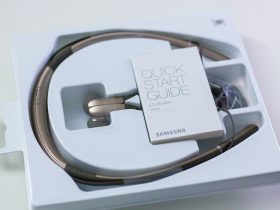Welcome back, savvy spenders and ethical enthusiasts! It’s Emma Green here, ready to dish out some piping-hot knowledge on all things ethical spending. Today, we’re tackling a topic that might seem like an oxymoron to some: “Measuring the Impact of Ethical Choices on Overall Financial Wellness.” Strap in, folks, because we’re about to uncover the hidden treasures that lie in the land of conscious consumerism.
In a world where the greenback reigns supreme, we often forget to consider the almighty power of our spending choices beyond just their monetary value. Ethical spending, contrary to popular belief, isn’t just about feeling warm and fuzzy on the inside. It can have a tangible impact on your overall financial health. Yes, you heard me right – doing good can actually make your wallet feel a little fuller. Let’s dive deep into the whys and hows.

The Ripple Effect of Ethical Choices
Every dollar you spend casts a vote for the kind of world you want to live in. Whether it’s opting for sustainably sourced coffee beans or supporting local businesses, your choices can set off a ripple effect that impacts not just your immediate community, but the global economy at large. But how does this affect your personal finances, you ask? Well, let me break it down for you.
Building Trust and Loyalty Pays Off
Think of your ethical spending as an investment in trust. When you consistently choose companies that align with your values, you build a rapport with these brands. And guess what? Loyalty often begets rewards. Many ethical companies offer loyalty programs, discounts, and special perks for their returning customers. For instance, that local fair-trade coffee shop might just throw in an extra shot of espresso or a free pastry for your continued patronage. Those little savings add up, my friends.
Long-Term Cost Savings Through Sustainable Choices
Now, let’s talk long-term gains. Ethical choices often have a sustainable edge, which can translate into cost savings down the road. Take the example of energy-efficient appliances. Sure, they might cost a bit more upfront, but their reduced energy consumption can slash your utility bills over time. Similarly, investing in a quality, durable wardrobe might seem like a splurge initially, but those clothes will last longer, saving you the hassle and expense of constant replacements.
The Power of Ethical Investing
It’s not just about how you spend – it’s also about where you invest. Ethical investing has been gaining serious traction in the financial world, and for good reason. By putting your money into companies that prioritize environmental and social responsibility, you’re not only supporting worthy causes but also potentially reaping financial rewards. Many ethical funds have shown comparable, if not superior, returns compared to conventional investment options. Who says you can’t save the world and make a buck at the same time?
Mindfulness and Financial Well-being
Beyond the dollars and cents, there’s a certain peace of mind that comes with knowing your money is making a positive impact. It’s the satisfaction of contributing to a better future, whether it’s by reducing your carbon footprint or supporting fair labor practices. This mindfulness can have a profound impact on your overall well-being, leading to reduced stress and improved mental health. And we all know that a clear mind is a powerful asset in the pursuit of financial success.
Real-Life Impact Stories

But don’t just take my word for it. Let’s peek at some real-life success stories that exemplify the magic of ethical spending. Take Sarah from Seattle, who ditched fast fashion in favor of sustainable clothing brands. Not only did she save money in the long run by investing in quality pieces, but her conscious choice also inspired her friends to follow suit, resulting in a local movement that supported ethical fashion in their community.
Or consider Mark, a tech entrepreneur who invested a portion of his portfolio in clean energy companies. Not only did his investments yield healthy returns, but he also found immense satisfaction in knowing that his money was fueling the development of renewable energy solutions, making the world a greener place for future generations.
Balancing the Ethical and Financial Scales
Now, let’s address the elephant in the room. It’s crucial to strike a balance between ethical ideals and financial practicality. Sometimes, ethical options might come with a heftier price tag, and not everyone can afford to splurge on eco-friendly alternatives or ethical investments. And that’s okay. Every small step counts, and even the tiniest choices can make a difference.
Wrapping Up
So, there you have it, folks. The connection between ethical choices and financial wellness isn’t just a feel-good fable; it’s a reality waiting to be explored. From building trust and reaping loyalty rewards to making smart investments and finding peace of mind, ethical spending can be a powerful tool in your financial arsenal. Remember, every dollar you spend is a vote for the world you want to live in. So why not make it count?
Until next time, keep those wallets conscious and those hearts full. This is Emma Green signing off, reminding you that being good isn’t just a virtue – it’s a smart financial move.
Catch you on the ethical side!
































